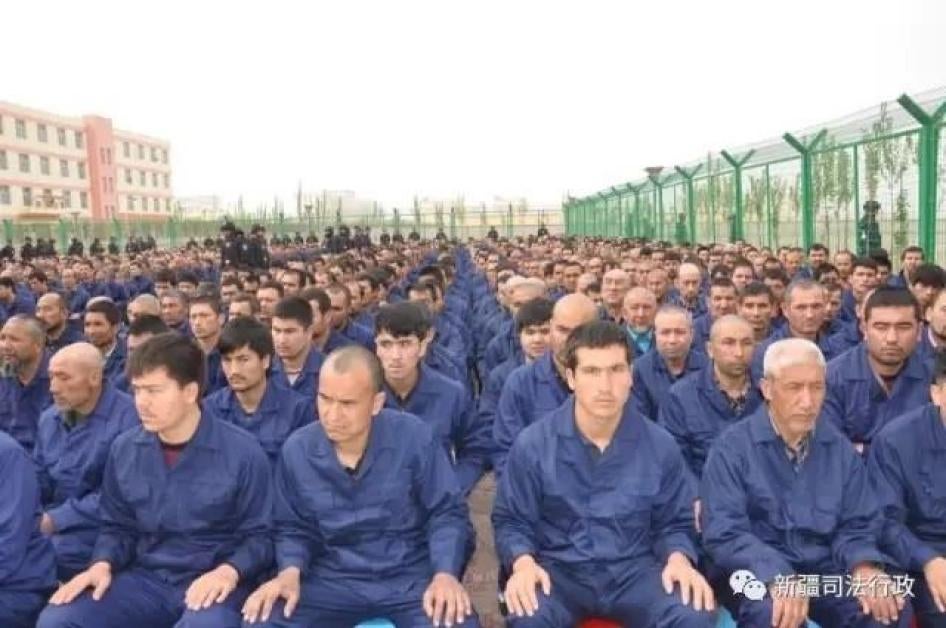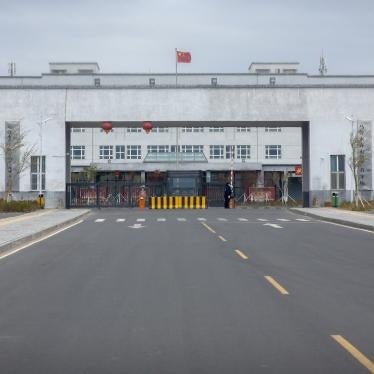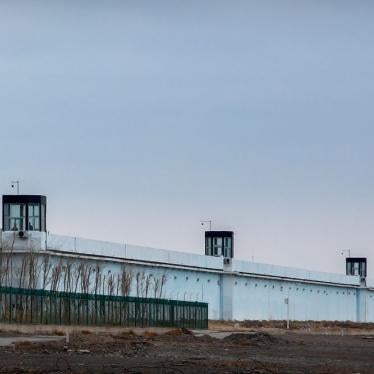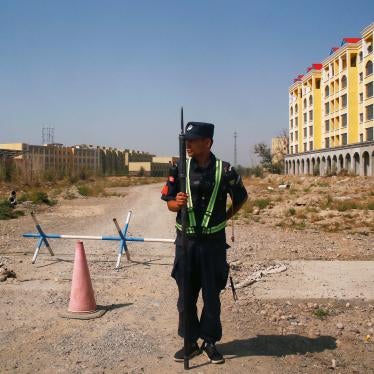After nearly four years of investigations and on-off negotiations with an obstructionist Chinese government, the United Nations human rights office has published a report that lays bare Beijing's systematic persecution of the Uyghurs and other Muslims in Xinjiang and shines a spotlight on one of the gravest human rights crises of our time.
That was the underlying message of a 48-page report by the office of the U.N. high commissioner for human rights, issued on Aug. 31, after an unsuccessful campaign by Beijing to prevent its publication. The report concludes that Chinese authorities' widespread human rights violations against the Uyghurs and others "may constitute international crimes, in particular crimes against humanity."
For years, Chinese authorities have categorically dismissed allegations of mass arbitrary detention, excessive surveillance, torture, forced labor and other abuses against Turkic Muslims in Xinjiang. In fact, one Chinese official remarked in 2017 that "the happiest Muslims in the world live in Xinjiang."
But former U.N. High Commissioner Michelle Bachelet's report tells a different story. It details hair-raising examples of rights abuses that will hopefully persuade more governments that they should join those actively urging Beijing to end the abuses.
The report describes the gruesome conditions of detention at China's "vocational education and training centers," which is anything but voluntary. Detainees suffer from a lack of food, forced family separations, and sexual violence. They're pressed into forced labor. The report also said U.N. investigators had heard credible allegations of "coercive enforcement of family planning policies."
Many of the U.N.'s alarming conclusions about Xinjiang echo findings that Human Rights Watch and Stanford Law School's Human Rights & Conflict Resolution Clinic presented in an April 2021 report entitled: "Break Their Lineage, Break Their Roots" China's Crimes against Humanity Targeting Uyghurs and Other Turkic Muslims.
As recently as a few days before the report was released, some U.N. diplomats and journalists had begun to question whether Bachelet, a former president of Chile, would issue the report. Beijing had made clear repeatedly that in its view the U.N. should not publish the report at all. Bachelet's spokesperson said in December that the U.N. would publish the report in the coming weeks, but that did not happen.
Clearly fearing the impact, the U.N. report would have, Beijing tried various stalling tactics once they realized Bachelet was likely to publish the report in spite of China's objections. First, it insisted the report should come out after the Beijing Winter Olympics and invited Bachelet to China for a "friendly" visit in the spring. Bachelet accepted the offer. Her refusal to unequivocally condemn Chinese abuses at the end of her May visit to Xinjiang angered many Uyghur rights activists, who called for her resignation, and disappointed international human rights groups and governments. Bachelet announced she would not seek a second term but promised to release the Xinjiang report before her term ended on Aug. 31—which she did.
What now?
Bachelet's successor – who will hopefully be a bold, experienced and outspoken human rights advocate—should immediately follow up on the report and urge the U.N. Human Rights Council to open a formal investigation into human rights abuses in China, with a special focus on Xinjiang. U.N. Secretary-General António Guterres has spoken out about human rights violations in Myanmar, Ethiopia, and Russian violations in Ukraine, but has been largely silent on China. He has endorsed Bachelet's report, though he can go further by supporting efforts to advocate for a U.N. inquiry to report on the human rights situation in China, and press for full implementation of all the high commissioner's recommendations.
This will not be an easy task. The Chinese government remains one of the most powerful in the U.N. system and is not afraid to threaten and intimidate anyone who criticizes it. Not only is it a permanent member of the U.N. Security Council, but it is also the world's second biggest economy—and second biggest contributor to the U.N. budget. Last year, several diplomats from the Global South told Human Rights Watch how Beijing had made clear that anyone supporting U.N. statements condemning abuses in Xinjiang would lose access to Chinese-made Covid vaccines. So they chose not to join the dozens of other countries that periodically condemn Beijing's rights violations.
But it's not just countries in the Global South. Many governments around the world have deep economic ties with China that they do not want to jeopardize. That makes many of them reluctant to criticize Beijing's abysmal human rights record.
Individual governments can do more—including imposing targeted sanctions and protecting Uyghur diaspora communities around the world—as can businesses. For example, Bachelet's report urged companies to conduct enhanced human rights due diligence in Xinjiang to identify where "products and services could lead to or contribute to adverse human rights impacts."
But the most important impact of the U.N.'s blistering report on Xinjiang may simply be that Xi Jinping's great wall of denial and disinformation is finally tumbling down.









